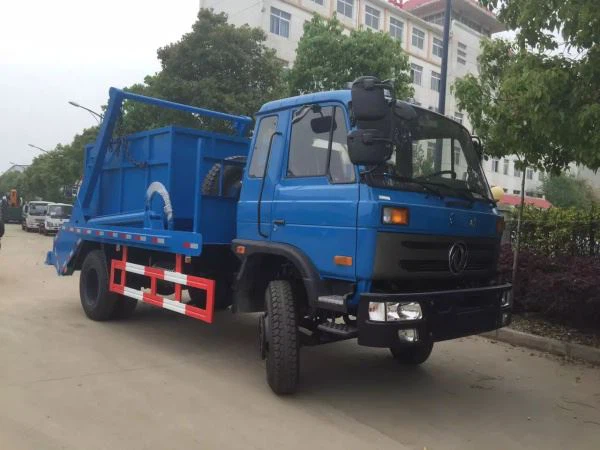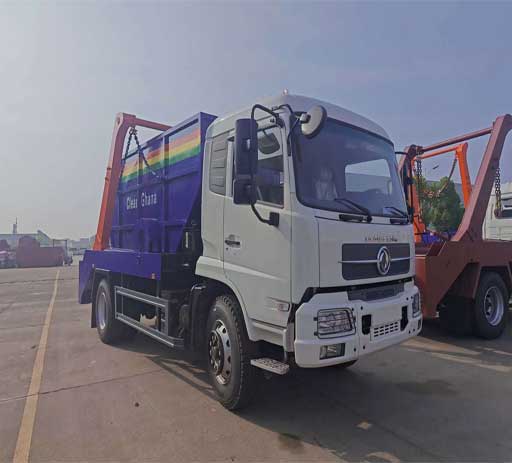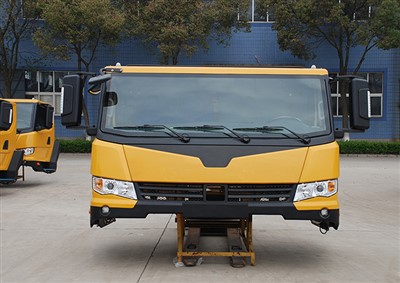Understanding Roll Off Hook Trucks: Your Comprehensive Guide

Roll off hook trucks are vital pieces of equipment in the construction and waste management industries. They offer an efficient method for transporting large containers of debris, waste, or materials, making them essential for many business operations. This article dives into the details of roll off hook trucks, from their mechanics and types to practical examples, operational tips, and maintenance advice.
What is a Roll Off Hook Truck?
A roll off hook truck is a specialized vehicle designed to transport roll off containers. These trucks are equipped with a hook-lift system that allows the driver to easily lift, lower, and transport containers without needing additional help. This feature streamlines loading and unloading, reducing the time and labor required to move heavy materials.
How Do Roll Off Hook Trucks Work?
The basic operation of a roll off hook truck involves:
- Hook System: The truck uses a hydraulic hook system to pick up and drop off containers.
- Container Design: Containers are designed with openings at the top to facilitate easy loading and unloading.
- Hydraulic Mechanisms: The hydraulic system provides the necessary power to lift heavy loads safely and efficiently.
Types of Roll Off Hook Trucks
Roll off hook trucks come in various configurations to cater to different needs. Here are the primary types:
1. Standard Roll Off Hook Trucks
This type is commonly used for general waste management and construction debris. They are versatile and can handle a variety of container sizes.
2. Heavy-Duty Roll Off Hook Trucks

Heavy-duty models are designed for more substantial loads and rugged terrains. They are often equipped with stronger engines and reinforced frames.
3. Mini Roll Off Hook Trucks
Mini roll off hook trucks are great for tight spaces. Often used in urban areas, these trucks can manage smaller containers and transport them efficiently through narrow streets.

Benefits of Using Roll Off Hook Trucks
Employing roll off hook trucks offers numerous advantages:
| Benefit | Description |
|---|---|
| Efficiency | Reduces loading and unloading time significantly. |
| Labor Savings | Minimizes the workforce needed for container transport. |
| Versatility | Can handle various materials, from construction debris to recyclables. |
| Cost-Effectiveness | Lowers operational costs by speeding up processes and requiring less manpower. |
Choosing the Right Roll Off Hook Truck
Selecting the appropriate roll off hook truck involves considering several factors:
1. Load Capacity
Determine the maximum weight you expect to transport. Ensure the truck you choose has a load capacity that exceeds your needs.
2. Size of the Containers
Different projects require varying container sizes. Assess the types of containers you will be using to ensure compatibility.
3. Terrain and Environment
If your operations will occur in rugged terrains, consider heavy-duty models with better suspension systems.
Practical Examples of Roll Off Hook Truck Usage
Construction Sites
In construction, roll off hook trucks are indispensable for transporting materials and debris. For example, a construction project requiring the removal of concrete waste can utilize a heavy-duty roll off hook truck to efficiently haul away large quantities without delays.
Residential Cleanup
Home renovation projects often generate a significant amount of waste. Mini roll off hook trucks can be employed to transport debris from residential areas, ensuring quick and efficient waste management while minimizing disruption to the neighborhood.

Maintenance Tips for Roll Off Hook Trucks
1. Check Hydraulic Fluid
The hydraulic system powers the hook mechanism. Regularly check and replace hydraulic fluid to avoid potential failure.
2. Inspect the Hook Mechanism
Regularly inspect the hook for signs of wear. Ensure there are no cracks or deformities that could compromise safety.
3. Tire Maintenance
Routine tire rotation and inflation checks prevent tire blowouts and improve fuel efficiency.
4. Brake System Checks
Since these trucks carry heavy loads, ensure that the braking system is in good condition. Routine inspections can prevent accidents.
Operational Safety Practices
Safety should be a priority when operating roll off hook trucks. Here are essential safety practices:
1. Proper Training
Ensure that all operators are adequately trained in handling roll off hook trucks to reduce the risk of accidents.
2. Pre-Operation Inspections
Conduct daily inspections to identify potential issues before operating the truck, focusing on the hydraulic system, tires, and brakes.
3. Create a Safe Work Environment
Ensure that the loading and unloading areas are clear of obstructions to allow the safe movement of the truck and personnel.
Roll Off Hook Truck Regulations
It’s vital to be aware of the regulations governing the operation of roll off hook trucks, as non-compliance can lead to fines and operational shutdowns. Here are key considerations:
1. Licensing Requirements
Operators typically need specific licenses to operate heavy-duty trucks. Check local and state regulations.
2. Weight Limits
Adhere to weight restrictions set by local authorities to prevent road damage and ensure safety.
3. Environmental Laws
Ensure that operations comply with environmental regulations, especially when transporting hazardous materials.
Frequently Asked Questions (FAQ)
1. What is the average cost of a roll off hook truck?
The price varies significantly based on size and type, ranging from $50,000 to $150,000 or more for new models.
2. How often should roll off hook trucks be serviced?
Regular maintenance is crucial, with services recommended every 3-6 months or as the manufacturer suggests.
3. Can I use a roll off hook truck for general transportation?
While designed for containers, they can also transport other heavy equipment, provided it’s within weight limits.
4. Are roll off hook trucks safe for use on highways?
Yes, as long as they are registered and comply with all road safety regulations.
5. What types of containers can roll off hook trucks transport?
These trucks can transport various containers, including dumpster containers, recycling bins, and construction debris hoppers.
6. Is training required to operate a roll off hook truck?
Yes, proper training is necessary to ensure safe and effective operation of the truck.
